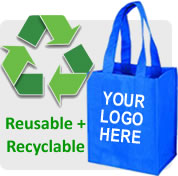
Colorslink Trading
No. 3 South Buona Vista Rd,
Viva Vista #01-32
Singapore 118136.
 +65-6264 4559
+65-6264 4559 +65-9789 7636
+65-9789 7636A step into a better future
![]() A step into a better future
A step into a better future![]()
As the earth is facing triple threats in form of inevitable natural disasters, the only way how we can save our planet from being fully destroyed is recycling.
How many times have we heard the word ¡°recycle¡± being mentioned in news, articles, TV shows, or in daily conversation, say within a day? But, ask ourselves, did I recycle?
If the answer is yes then congratulations because you are helping to make this world a safer place to live. Not just for you and your family, but for other living things too.



Before we proceed further, we would like to ask you another simple question: Do you know what the meaning of recycling is and do you recycle because you think it is a necessity or because you¡¯re just following the trend? At this point, we are sure less than a few will say yes and choose the former (recycle as a necessity) as their answer.
Generally speaking, for years, recycling has been long perceived as dumping bottles, plastic containers and old newspaper according to the coloured bins provided, contents from these bins are then emptied and sent to recycling plants to be crushed into pieces, thoroughly processed and reshaped into either recycle paper sheets, new bottles or plastic containers for mass consumption. In a general sense, that is indeed, true.
However, recycling, in a boarder sense can be best defined as processing used material (waste) into new products to prevent waste of potentially useful material, reduce energy usage, reduce air pollution and water pollution by reducing the need for ¡°conventional¡± waste disposal, and lower greenhouse gas emissions as compare to virgin production.
So Why Do We Need To Recycle?
The earth today is facing a series natural hazards and man made threats which has serious economic consequences and cause harm to our ecosystem. Should we fail to act responsibly to minimize the green house gas emission from industrialization, we shall see more serious problems such as global warming effects. Global warming is the increase in earth¡¯s temperature and the desalination of our oceans. Rapid increased temperature and rising ocean, means we will see frequent and stronger hurricanes in parts of the world, while droughts and heatwaves affect other parts such as Africa and Europe. The thinning of the Ozone layer reduces the absorption of harmful ultraviolet (UV) rays increasing the risk of skin cancer in humans due to harmful UV exposure.

Disposal of non biodegradable waste makes our beautiful land look dirty, contaminate our fresh water supplies affecting the cleanliness of our drinking water and the contamination of our air makes us breath in polluted dust destroying our respiratory system.
Global warming and pollution has in recent years added to the use of excessive water. Failure to play our part in saving the environment through recycling can add to water shortage. This means we will little water flowing downstream destroying our fish supplies such as salmon. Agriculture consequences due to drought will mean shortage of food supplies for their people.
Therefore, by recycling, it will help us and the country to save money, energy and most importantly, our precious ecosystem.
Like what we always say, ¡°home is what all the good practice and things start¡±. So, why don¡¯t we start implementing recycling culture as part of our family culture today?
Working Together For A Better Future!
Tip To Start:
 Find a convenient place to collect recyclable items. Most things come from the kitchen, making it a good spot to set up a recycling centre within your household.
Find a convenient place to collect recyclable items. Most things come from the kitchen, making it a good spot to set up a recycling centre within your household.
 Assign containers for glass, plastic and aluminum, to avoid mess.
Assign containers for glass, plastic and aluminum, to avoid mess.
 Take leftover plastic bags back to grocery stores where they are collected and reused to make plastic lumber.
Take leftover plastic bags back to grocery stores where they are collected and reused to make plastic lumber.
 When we are shopping, bring our own recyclable, non-woven shopping bag or basket with you instead of using plastic bags provided by the grocers.
When we are shopping, bring our own recyclable, non-woven shopping bag or basket with you instead of using plastic bags provided by the grocers.
 Check the bottom of plastic items to identify what type of plastic they are. If the type is not recycled, consider way to reuse the container.
Check the bottom of plastic items to identify what type of plastic they are. If the type is not recycled, consider way to reuse the container.
 Recycle junk mail or reuse it as scratch paper. Newspaper, magazines, and white paper can all be recycled as long as paper is clean and dry.
Recycle junk mail or reuse it as scratch paper. Newspaper, magazines, and white paper can all be recycled as long as paper is clean and dry.
 If we have old but useable electronic devices such as computers, TV, or DVD players, donate them to any charity home or learning centre for the disabled so that the items can be put to good use instead of ending up in a junkyard.
If we have old but useable electronic devices such as computers, TV, or DVD players, donate them to any charity home or learning centre for the disabled so that the items can be put to good use instead of ending up in a junkyard.
 Recycle worn-out rechargeable batteries like those used in cell phone, computer, or power tools. Try goggling for a drop- off location.
Recycle worn-out rechargeable batteries like those used in cell phone, computer, or power tools. Try goggling for a drop- off location.
![]()
![]()
![]()

